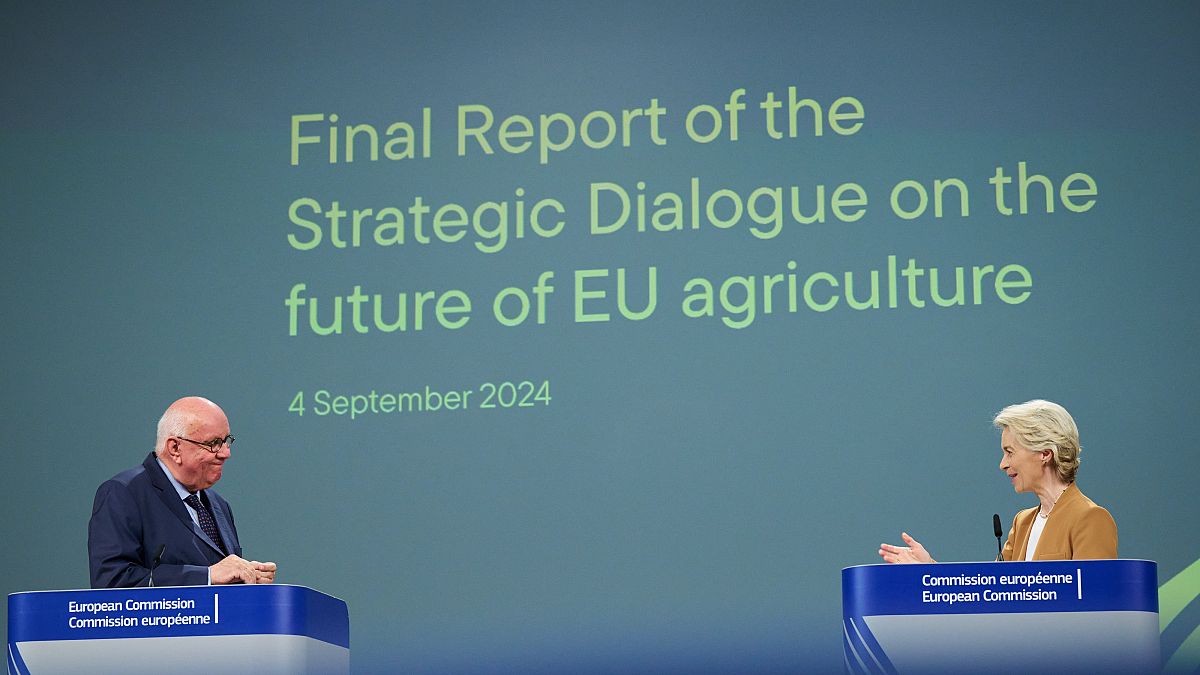Commission chief Ursula von der Leyen has been urged to open a new chapter in EU food policy and overhaul the current CAP system following recommendations of a reflection group. Announced in last year’s State of the Union address, the strategic dialogue for the future of EU agriculture aims to address polarization in the agriculture and food policy debate. The group, comprising representatives from various sectors, has produced a report highlighting the urgency of reforming food systems and stressing cooperation across the food value chain as essential.
The report presented to von der Leyen underscores the need for immediate action and emphasizes reforming the EU’s Common Agricultural Policy (CAP). The group recommends moving away from non-degressive area-based payments towards more effective income support, with a focus on enabling lively rural areas and rewarding sustainable agricultural practices. The group also proposes the creation of an Agri-food Just Transition Fund to support farmers in transitioning to more sustainable practices, as well as a shift towards voluntary environmental measures instead of mandatory practices tied to subsidies.
In addition to reforming subsidies, the report advocates for reducing unnecessary bureaucracy and ensuring inclusive policy in decision-making processes. It highlights the strategic importance of food and agricultural production in the current geopolitical context and calls for a review of the Commission’s trade negotiation strategies. The report also calls for a broader approach to sustainability, encompassing ecological concerns, economic viability of farmers, and social responsibilities. It recommends the full implementation of social conditionality within the CAP and the development of a new sustainability benchmarking system.
The group’s recommendations also include the establishment of a European Board on Agri-Food (EBAF) to continue the work of the strategic dialogue. This body would be responsible for developing, implementing, overseeing, and refining the benchmarking framework, resolving inconsistencies, and monitoring progress. Overall, the report calls for a new approach to EU food policy that focuses on trust in farmers, better incentives, and a shift towards sustainability in all aspects of agriculture and food production.
Von der Leyen has committed to studying the report’s recommendations carefully and incorporating them into the vision for agriculture and food. She has also pledged to present a roadmap within the first 100 days of her next mandate. The recommendations from the reflection group represent a significant step towards reshaping EU food policy and addressing key challenges facing the agriculture sector in Europe. By focusing on reforming subsidies, promoting sustainable practices, and ensuring inclusivity in decision-making processes, the EU can work towards a more resilient and future-oriented agricultural sector.








